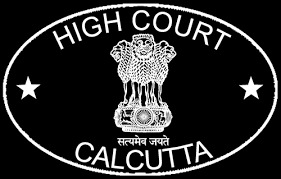1. We are invited in this Rule to set aside an order by which the Court of appeal below has directed execution of a decree for rent to proceed, not under sec. 158B of the Bengal Tenancy Act as had been ordered by the Court of first instance, but under the provisions of the Code of Civil Procedure. The circumstances under which the order in question has been made may be briefly narrated. The Petitioner is a usufructuary mortgagee from a co-sharer landlord, who is interested in the property to the extent of one-fourth. The Opposite Parties are entitled to the remaining three-fourths share. The Petitioner as usufructuary mortgagee brought a suit for rent against the tenant and joined the proprietors of the three-fourths share as also the mortgagor as parties Defendants. He stated in the plaint that the entire rent payable to all the landlords was Rs. 42 annually, and that the rent payable in his share was Rs. 10-8. He further alleged that the co-sharers refused his invitation to join as co-Plaintiffs in the suit, and had declined to inform him whether any arrears of rent were due to them, and if so, how much. He consequently instituted the suit under sec. 148A of the Bengal Tenancy Act, and prayed that the co-sharers might be transferred to the category of co-Plaintiffs, if they so desired, and that in any event if they stated that rent was due to them, the Plaintiff would amend his claim and pay additional court-fees. The co-sharers did not enter appearance, and the Plaintiff obtained a decree Orent. He next applied for execution in accordance with sub-sec. (1) of sec. 158B of the Bengal Tenancy Act. Thereupon under sub-sec (2), notice of the application for execution was given to the co-sharers. They appeared and contended that the suit had not been properly framed under sec. 148A, and that the execution could not proceed under sec. 158B. The objection was overruled by the Court of first instance. Upon appeal the District Judge has reversed that decision and has directed the Court of first instance to hold the sale not under sub-sec. (2) of sec. 158B of the Bengal Tenancy Act, but in accordance with the CPC on the footing that the decree obtained by the Petitioner was a decree for money and was not capable of execution as a decree for rent under the provisions of the Bengal Tenancy Act. The propriety of this order is now challenged before us, and we are invited to interfere in the exercise of our revisional jurisdiction, inasmuch as no second appeal lies in the present case. There is no question that the case falls within sec. 47 of the Code of Civil Procedure, because the matter arises between the parties to the suit, and the question raised obviously relates to the execution of the decree. But a second appeal is barred under sec. 153 of the Bengal Tenancy Act, because the amount claimed in the suit was less than Rs. 100 [Shama Charan v. Debendra Nath 4 C. W. N. 269 (1900)]. Consequently if the order of the Court below is erroneous, the only course left open to the Petitioner to obtain relief is by way of an application under either sec. 115 of the CPC or sec. 15 of the Indian High Courts Act.
2. The order of the Court below has been sought to be supported on behalf of the Opposite Party on three grounds. It has been argued in the first place, that the Bengal Tenancy Act does not apply, because the decree was made in a suit by a person other than the landlord. It is difficult to appreciate the force of this argument, but the contention appears to be that a usufructuary mortgagee is not in the position of a landlord ; in other words, if the relationship of landlord and tenant exists between A and B, the usufructuary mortgagee of A is not in the position of a landlord in relation to B. In our opinion, this contention is wholly fallacious. The usufructuary mortgagee is entitled to receive the rent, as is clear from the definition of the expression "usufructuary mortgage," given in cl. (d) of sec. 58 of the Transfer of Property Act. Reference has been made to cls. (3) and (4) of sec. 3 of the Bengal Tenancy Act, but they are clearly of no assistance to the Opposite Party. The term "landlord" means a person immediately under whom a tenant holds, and the term "tenant" is defined to mean a person who holds land under another person, and is or, but for a special contract, would be liable to pay rent for that land to that person. The usufructuary mortgagee is consequently a person immediately under whom a tenant holds. But it has been argued that this view cannot be supported, because a usufructuary mortgagee is a transferee of a portion only of the interest vested in the mortgagor. This clearly does not affect the question. An intermediate lessee is entitled to collect rent from the tenant--rent which but for the lease would have been payable to his landlord. On the other hand, sec. 78 of the Land Registration Act clearly contemplates that a usufructuary mortgagee in possession is entitled to sue for rent in his character as landlord. The first contention, therefore, fails.
3. It has been argued in the second place, that a usufructuary mortgagee is not in the position of a co sharer landlord within the meaning of sec. 158B, sub-sec. (1), cl. (c) of the Bengal Tenancy Act, because he is the mortgagee from one of the proprietors, whereas the co sharers are the proprietors themselves. This argument is obviously fallacious. The co-sharer landlords are the entire body of persons who are entitled to collect rent. It is not essential that the interest of each should be of the same degree ; for instance, it is conceivable that a putnidar of one-half share in the zemindary and a dar putnidar of the other half share may be jointly entitled to collect rent from tenants in actual occupation, and when they are so entitled, they clearly constitute a body of co-sharer landlords. It has been contended further that sec. 158B has no application, because the suit as framed was not within the scope of sec. 148A. We have already described the nature of the suit, and it is clear from the decision in the case of Nanda Lal v. Kala Chand 16 C. W. N. 820 (1910) that the Plaintiffs substantially complied with the requirements of sec. 148A. It has been argued, however, that the suit was not brought for the entire rent due to all the co-sharers. We have been invited to construe the expression "rent due" as equivalent to "rent payable under the contract of tenancy." The argument in substance is that to entitle a person to claim the benefit of sec. 148A he must include in the suit a claim, not for the rent actually in arrears, but the rent payable under the contract without the deduction of any amount that might have been actually paid to the landlord. This clearly is an entirely untenable contention. We may further add that it has not been suggested at any stage of present proceeding, nor was the suggestion made in the course of the original suit that at the time of the commencement of the litigation, there was an arrear of rent due to the co-sharer landlords. The Plaintiff sued for the recovery of what to his information was the whole arrear due, and that was in essence a suit for rent due to all the co-sharers, within the meaning of sec. 148A of the Bengal Tenancy Act. The second contention consequently fails.
4. It has been argued in the third place that the execution proceedings are barred under r. 14 of Or. 34 of the Civil Procedure Code. This contention is based obviously on a misapprehension. R. 14 provides that where a mortgagee has obtained a decree for the payment of money in satisfaction of a claim arising under the mortgage, he shall not be entitled to bring the mortgaged property to sale otherwise than by instituting a suit for sale in enforcement of the mortgage, and he may institute such suit notwithstanding anything contained in Or. 2, r. 2. This rule is inapplicable on three grounds. In the first place, the mortgagee has not obtained a decree for the payment of money in satisfaction of a claim arising under the usufructuary mortgage. In the second place, he does not here seek to bring the mortgaged property to sale ; the mortgagee seeks to bring to sale a tenancy subordinate to the interest of the mortgagor. In the third place, the decree has not been made for money in satisfaction of a claim arising under the mortgage. Consequently the suit is not barred under Or. 34, r. 14.
5. It is thus plain that the order of the District Judge cannot be supported on any of the grounds suggested. The only question for consideration is as to the competency of this Court to interfere with that order. On behalf of the Opposite Party, it has been suggested that the District Judge has acted in the exercise of his jurisdiction, as under the law an appeal did lie to him. He has, it is said, committed only an error of law, which, in the language of their Lordships of the Judicial Committee in the case of Malkarjan v. Narhari I. L. R. 25 Bom. 337 (1900) he had jurisdiction to commit. This is a plausible view of the case, but upon a closer examination of the true nature of the order of the District Judge, the real position appears to be this. The order of the District Judge replaces the order of the Court of first instance. That is, in substance, the effect of the exercise of appellate jurisdiction by the Court below ; if it finally disposes of the case, it makes the order which should have been passed by the Court of first instance. The result of the decision of the District Judge, consequently, is that the Court of first instance has to proceed to sell the tenure in accordance with the provisions of the Code of Civil Procedure, which it has no jurisdiction to do, and to refuse to sell the tenure in accordance with sec. 158B of the Bengal Tenancy Act, which it has jurisdiction to do. The circumstance that this result follows from an erroneous interpretation of the scope and requirements of secs. 148A and 158B of the Bengal Tenancy Act is clearly no bar to the exercise of our revisional powers : (Jugodanand v. Amritalal I. L. R. 22 Cal. 767, (783) (1895), Sheo Prosad v. Ramchunder I. L. R. 41 Cal. 323 (341), (1913).
6. The outstanding fact remains that if the original Court proceed to carry out the direction of the lower Appellate Court, as it is bound to do, it will exercise a jurisdiction, which it does not possess and will decline a jurisdiction which it does possess, and such proceeding would obviously be liable to be set aside--an aspect of the matter which was not suggested to the Court in Mathura v. Umesh 1 C. W. N. 626 (1897). We are of opinion that this is plainly a case where it is competent to this Court to set aside the order of the Court below. The result is that this Rule is made absolute, the order of the District Judge set aside and that of the Court of first instance restored. This order will carry costs in all the Courts. We assess the hearing fee in this Court at five gold mohurs.

